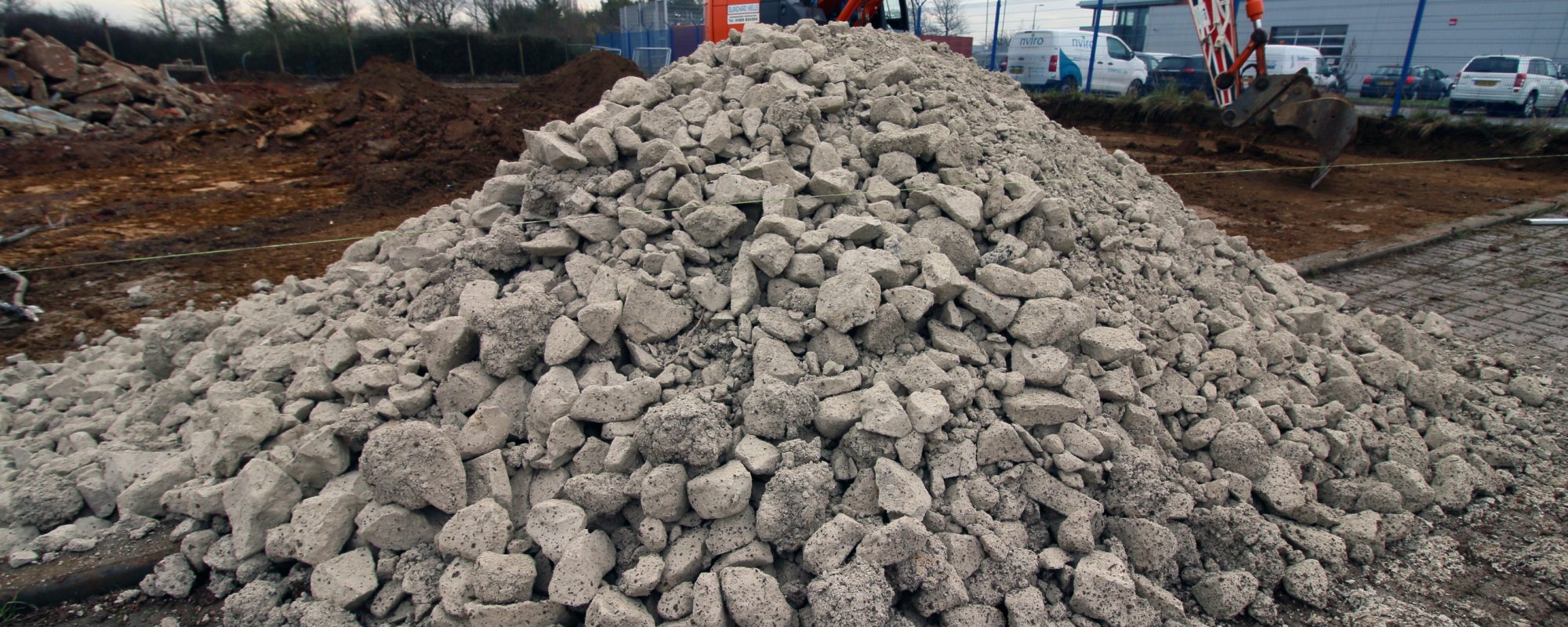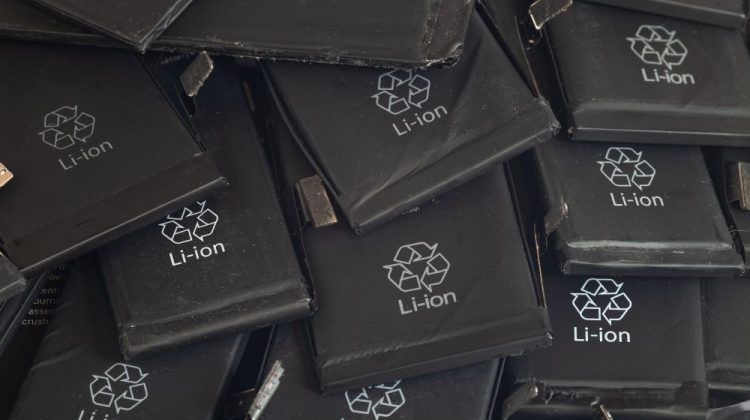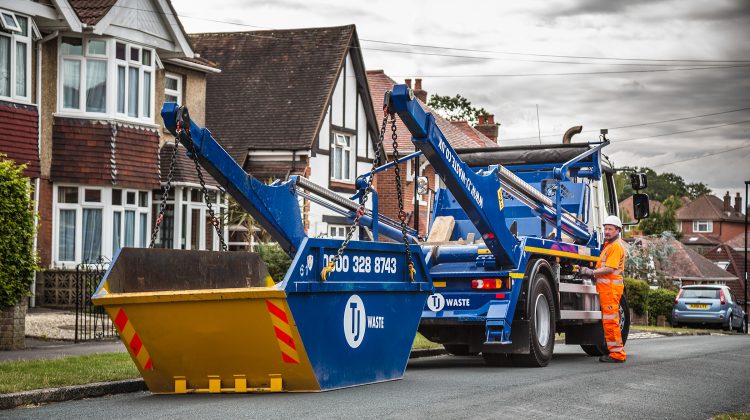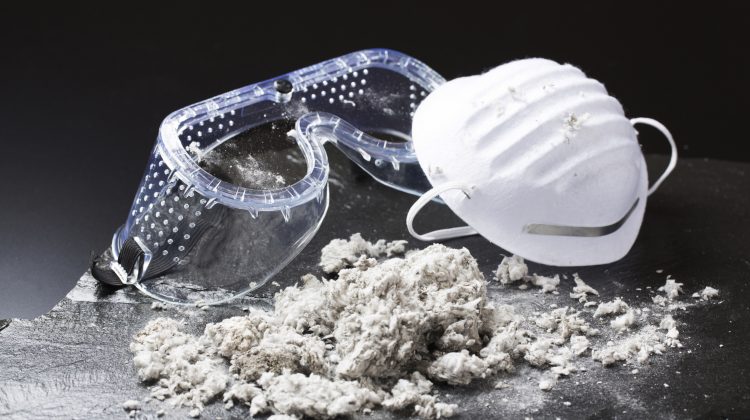Incorrect disposal of lithium-ion batteries can be catastrophic, as the recent fire at our Tipner facility demonstrated. Discover how to safely dispose of these batteries…

Rock chalk, which TJ source and supply from their quarry in Butser, Petersfield, is ideal for use in the construction industry due to its strength, versatility, porous quality and cost-effectiveness.
Butser rock chalk is chalk that is akin to limestone rather than standard chalk, meaning it’s a very strong and hard wearing material. It’s the strongest naturally-occuring material in Hampshire and TJ recognised the value of this which led to them purchasing the quarry in 2017.
Quarrying began at Butser in 2018 and the chalk is utilised in several forms – as crushed chalk, ‘as dug’ chalk, gabion rock chalk and agglime chalk. As well as being very strong, rock chalk is also porous, which makes it ideal for construction projects where good drainage is key.
The crushed chalk – also referred to as 6F5 rock chalk, is ideal for construction projects as a primary general fill aggregate. It’s most commonly used for capping, laid over terram to raise and level natural ground ready for a Type 1 sub-base. This is TJ’s most popular chalk product. It is great value for money because it is locally sourced and alternatives such as limestone, granite and basalt would have to be quarried from the Mendips and Midlands and transported to the South by rail, which leads to inflated cost.
The ‘as dug’ chalk is used as a temporary base or infill for construction projects and works well for these purposes as it is naturally hard. The gabion rock chalk is used within wire baskets as support for soil banks. The agglime part of the chalk is a powder-like material that is spread over agricultural fields to make the ground more fertile.
Not only can we offer you a superb product that can be used for your groundwork and construction projects, we also offer a great all-round service to go with it. We can:
TJ have recently partnered with OCL Regeneration to create and produce a new hydraulic bound material (HBM), which is currently undergoing trials to test its strength. The material is largely made up of Butser Rock Chalk – 90%+ – which is crushed and mixed with water and cement at OCL’s mixing plant. OCL specialise in aggregate recycling and have depots in south and central England.
The purpose of the trial is to establish the optimum moisture content of the material. This was done by changing the mixing ratios of the chalk, water and cement and testing each combination separately so that the strength of each option can be calculated and analysed.
The various different ratioed samples of material were poured into separate 15cm metal cubes and the strength of each will be tested at 7, 14 and 28 days so that analysis can be carried out. This will also ensure that the end material matches the strict specification requirements that must be met.
The target is that when the trial is complete, it will achieve Clause 840 Specification for Highways, which will make it an approved sub-base material. The intended purpose for this will be as a sub-base for new highways infrastructure; namely it will be laid under the asphalt layer of the road.
The trials took place on 30 May so with the 7, 14 and 28-day tests, the final results should be back at the end of June. After that we will officially be able to offer the material for sale.
Butser rock chalk is used every week for projects big and small, across Hampshire and beyond.
TJ recently sourced and delivered 1,200 tonnes of crushed rock chalk for a £3m retail project on Hayling Island. The chalk was delivered daily for the duration of the foundation stage.
TJ also worked with civil engineering company Blanchard Wells to advise and supply materials for a base layer for a new Civil Engineering Training Centre in Lee-on-the-Solent. TJ then coordinated the delivery of 600 tonnes of 6F5 graded rock chalk, which was produced to specification, to the site in 30 eight-wheel tipper loads. This was completed within a week.
Find out more about our rock chalk or give us a call on 08000 463 964 to discuss how chalk could be the best option for your construction project.

Incorrect disposal of lithium-ion batteries can be catastrophic, as the recent fire at our Tipner facility demonstrated. Discover how to safely dispose of these batteries…

Skip and grab hire are both great options for your domestic or commercial projects. There are advantages to both depending on your project, so read on to discover which option would be best suited to your requirements.

Asbestos is a highly toxic and hazardous waste material that must be removed and disposed of properly by professionally licensed companies. We’re licensed to carry hazardous materials such as asbestos and can provide you with the complete service…
Change your stored postcode to update prices for your location.